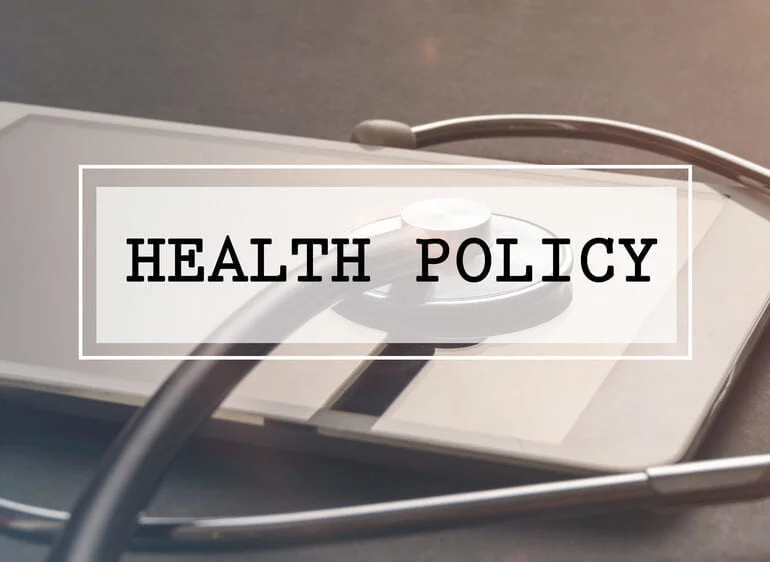Population Health News Round-Up: February 2024
JoAnne DyerIAPHS Members in the News

Thomas Jefferson University College of Population Health calls for “an end to overprescribing in the elderly.” Taking five or more medications increases risks and contributes to “increased morbidity, elevated healthcare spending, and diminished quality of life in older individuals.” (December 28, 2023; TJPH is an institutional member)
Anna K. Hing, Carrie Henning-Smith, and Tongtan Chantarat in the Journal of Racial and Ethnic Health Disparities: “Rural areas and small towns are potential hotspots of racial arrest disparities across the USA, especially in the Midwest. Approaches to overcoming structural racism in policing must include strategies targeted at rural/small town communities.” (July 31, 2023)
Alexander C. Tsai and Atheendar s. Venkataramani in JAMA Internal Medicine: “These findings suggest that wealth inequality in the US is associated with significant inequities in survival. Wealth redistribution policies may substantially reduce those inequities and increase population longevity.” (January 29, 2024)
Syracuse University Lerner Center for Public Health Promotion & Population Health (with Shannon Monnat, Series Editor): “In the National Health Interview Survey (NHIS), more than half of adults who identified a disability using the American Community Survey (ACS) disability questions were undercounted by the Washington Group Short Set (WG-SS) questions.” (February 6, 2024)
Sandro Galea joined The CommonHealth podcast to discuss his new book, Within Reason. (February 1, 2024)
Health Equity and Disparities
Dr. Uche Blackstock’s memoir examines racism in American healthcare: A physician herself, Dr. Blackstock experienced racism at multiple levels and places within the system, including as a patient and as a medical student. (NPR, January 22, 2024)
Timeline illustrates how historical events shaped disparities: From the exploitation of enslaved black women to the Alaska Purchase to the Chinese Exclusion Act and many events in between, this timeline shows how today’s disparities were shaped in America by history over the centuries. (Kaiser Family Foundation, no date)
Disparities after COVID infection: Among other disparities, Black participants in the study reported more missed work, and Asian participants were more likely to report fair/poor health than white participants. (Frontiers in Public Health, January 30, 2024)
Environmental Health and Justice
Along the Mississippi River, Cancer Alley causes multiple harms: Low birth weight, childhood asthma, and bronchitis are found at high rates in places with high levels of petrochemical pollution. Should the EPA take over regulatory work for the Louisiana Department of Environmental Quality? (Grist, January 26, 2024)
Environmental justice in Seattle’s Duwamish Valley: The University of Washington is partnering with several other groups to help diverse and lower-income residents with climate resilience: “the ability to prevent, prepare for, and respond to disruptions caused by climate change,” such as increased flood risks. (UW Interdisciplinary Center for Exposures, Diseases, Genomics, and Environment News, 2023)
Built Environments, Spaces, and Places
Cities are making progress in reducing food deserts: It’s tough to keep grocery stores open in food deserts, but nonprofit organizations, state funding, loans, and grants are trying to keep small grocers afloat. (Bloomberg CityLab, February 8, 2024)
Does urban density help or harm mental health?: The air pollution that accompanies urban density can harm mental health. However, “[G]reater urban density might benefit health, but might only do so when air pollution concentrations are low.” (Environmental Pollution, February 19, 2024)
Policy and Programs
Removing barriers to food assistance programs: Federal programs like WIC, SNAP, and CACFP improve health and other outcomes, but these programs are underutilized. Here, authors suggest solutions toward equitable access, such as using other administrative records to determine eligibility. (AJPH, December 20, 2023)
Governments are taking aim at prior authorization rules: The Biden administration and several states are trying to help patients by limiting and streamlining prior authorization from healthcare insurers. (KFF Health News, February 13, 2024)
How COVID restrictions affected the mental health of older adults: While lockdown-type policies may have saved lives during the pandemic, they also “amplified longstanding problems of social isolation and loneliness among older people. . . .” Isolation was also linked to “elevated symptoms of depression and anxiety.” (PRB, Today’s Research on Aging, 2023)










All comments will be reviewed and posted if substantive and of general interest to IAPHS readers.